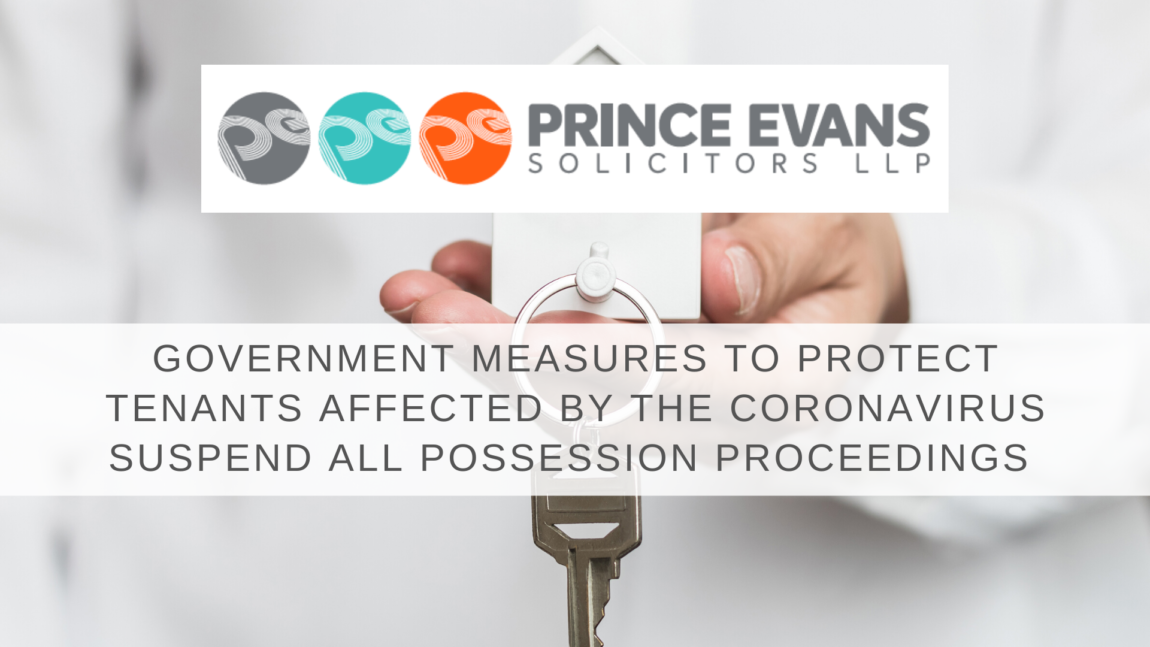
GOVERNMENT MEASURES TO PROTECT TENANTS AFFECTED BY CORONAVIRUS: SUSPEND ALL POSSESSION PROCEEDINGS
The Government has introduced a package of measures to protect renters affected by Coronavirus so that “no renter in either social or private accommodation will be forced out of their home.”.
As of 27 March 2020 the Court Service must suspend all ongoing Housing Possession actions. This means that no new proceedings for possession will be issued for the next 90 days and any current proceedings will be suspended for a similar term. This period can be extended if need be.
It applies to both private and social landlord tenants as well as those with licences under the Protection from Eviction Act 1977 in addition to mortgage holders in both England and Wales. There is no need to show that any arrears have been specifically caused by an impact fromCoronavirus.
In addition, no new bailiffs warrants will be issued and any currently listed bailiff’s Warrants will be postponed.
In practice, we have found that the Court and Judges have been postponing hearings and cancelling bailiff’s appointments for at least a week now.
Other applications which may relate to residential properties, such as urgent injunctions, may continue to be listed but where possible any Court hearings will be dealt with remotely, through either telephone or video conferencing. There will only be a limited number of Courts open.
In addition, from 26 March 2020 Landlords will have to give all their tenants three months’ notice if they intend to seek possession. The extended buffer period will apply until 30 September 2020 and that period may be extended if need be. Again, this applies to tenants in the private and social rented sector in England and Wales and on all grounds of eviction, not just the current two months’ notice under S21 of the Housing Act 1988.
The Government has not specifically removed the Section 21 Housing Act 1988 provision but have previously advised it intends to do so and its removal does form part of the Renters’ Reform Bill.
In addition the Government has expressed its intention to introduce a Pre-Action Protocol requirement which will require landlords in the private rented sector to carry out specified steps before issuing rent arrears related possession proceedings. The aim of this is to ensure that landlords and tenants agree reasonable repayment plans and that possession proceedings are a matter of last resort.
The current Pre-Action Protocol that applies to Local Authority and Housing Association properties requires them to provide evidence at any Court Hearing that they have complied with the Protocol. If they have not then the Judge can adjourn or dismiss the proceedings.
The Government have placed significant emphasis on the emergency financial provisions recently implemented which include payment of up to 80% of employees’ wages, payments for the self-employed, and an increase in Universal Credit, Housing Benefit and local housing allowance rates. Landlords will also be protected by a three-month mortgage payment holiday where they have a Buy to Let mortgage.
At a time when both landlords and tenants are likely to face considerable financial difficulties, tenants are reminded that they remain liable to pay current rent and landlords are reminded that they remain obligated to ensure properties are meeting the required standard. Landlords must ensure that essential health and safety repairs are carried out. Agreement for non-urgent repairs to be done later should be made between tenants and landlords.
These new measures will have a very significant effect on residential possession proceedings in the short term, at the very least for the next three months. There will also be a subsequent backlog in Court listing and bailiff’s appointments. In the longer term the introduction of a longer notice period for tenants to vacate the property and its probable removal, and the need for the private rented sector to comply with a Pre-Action Protocol reflects a determination by the Government and the Courts to redefine the relationship between landlords and tenants.
Written by Jeremy Teall, Partner & Head of Landlord and Tenant

